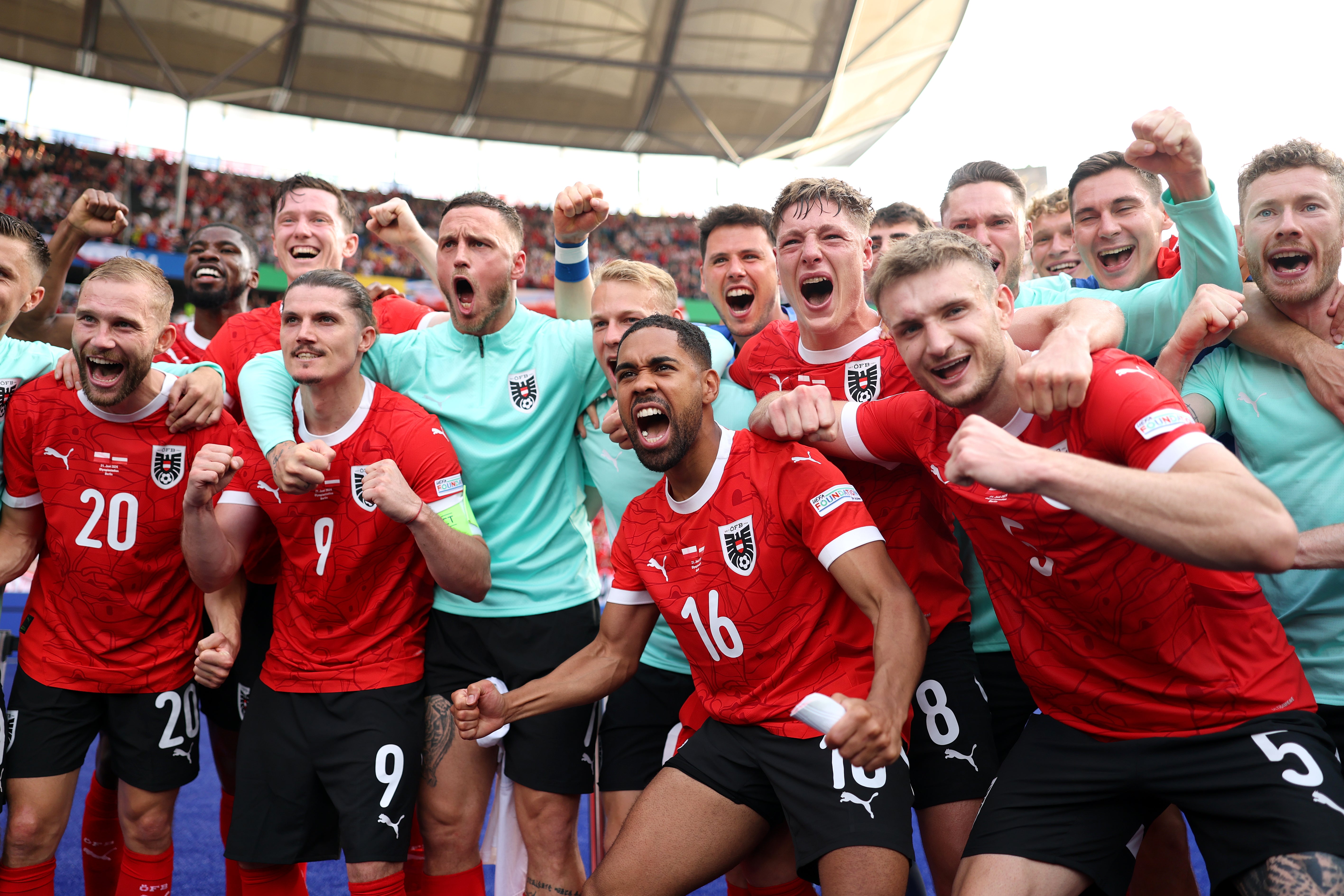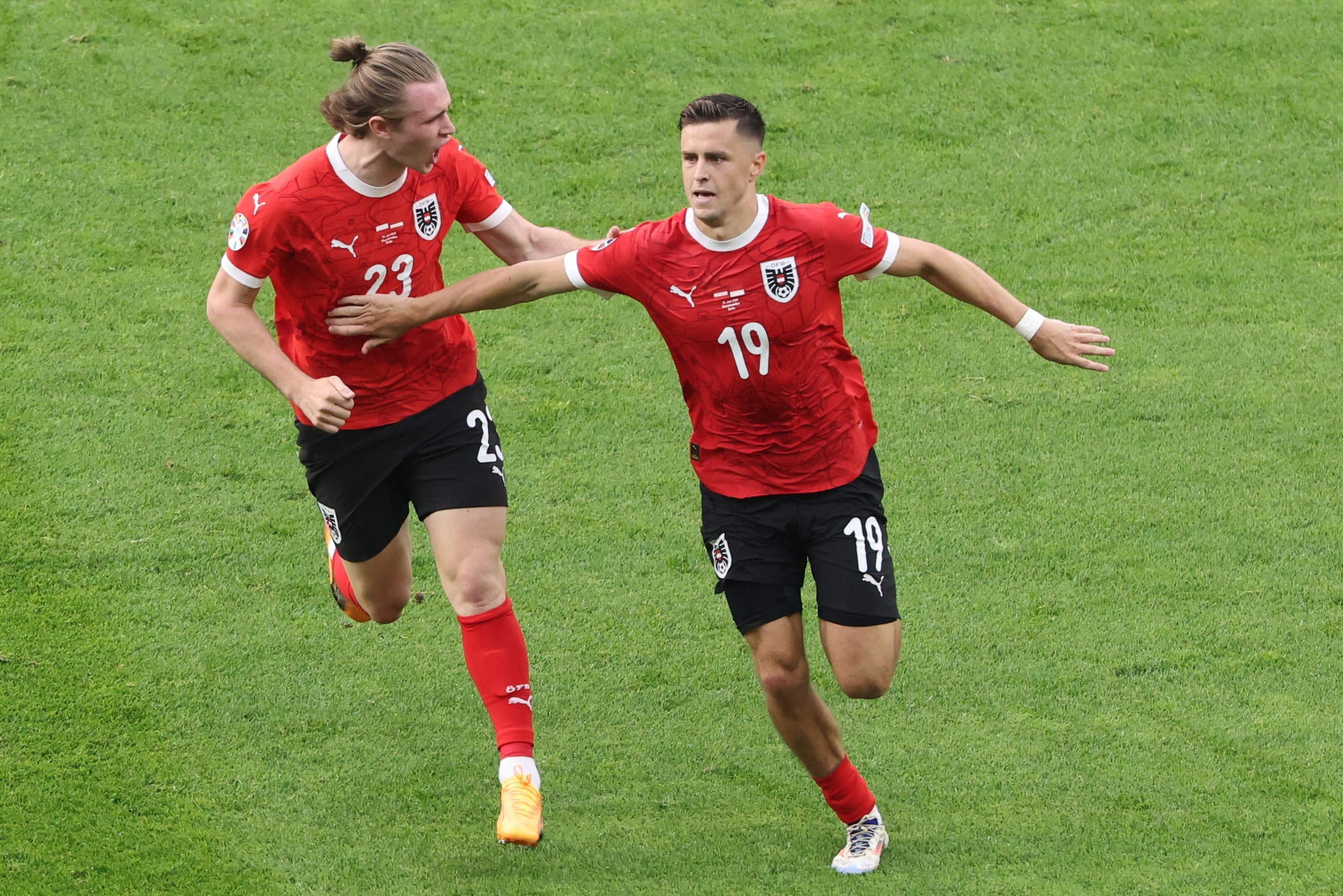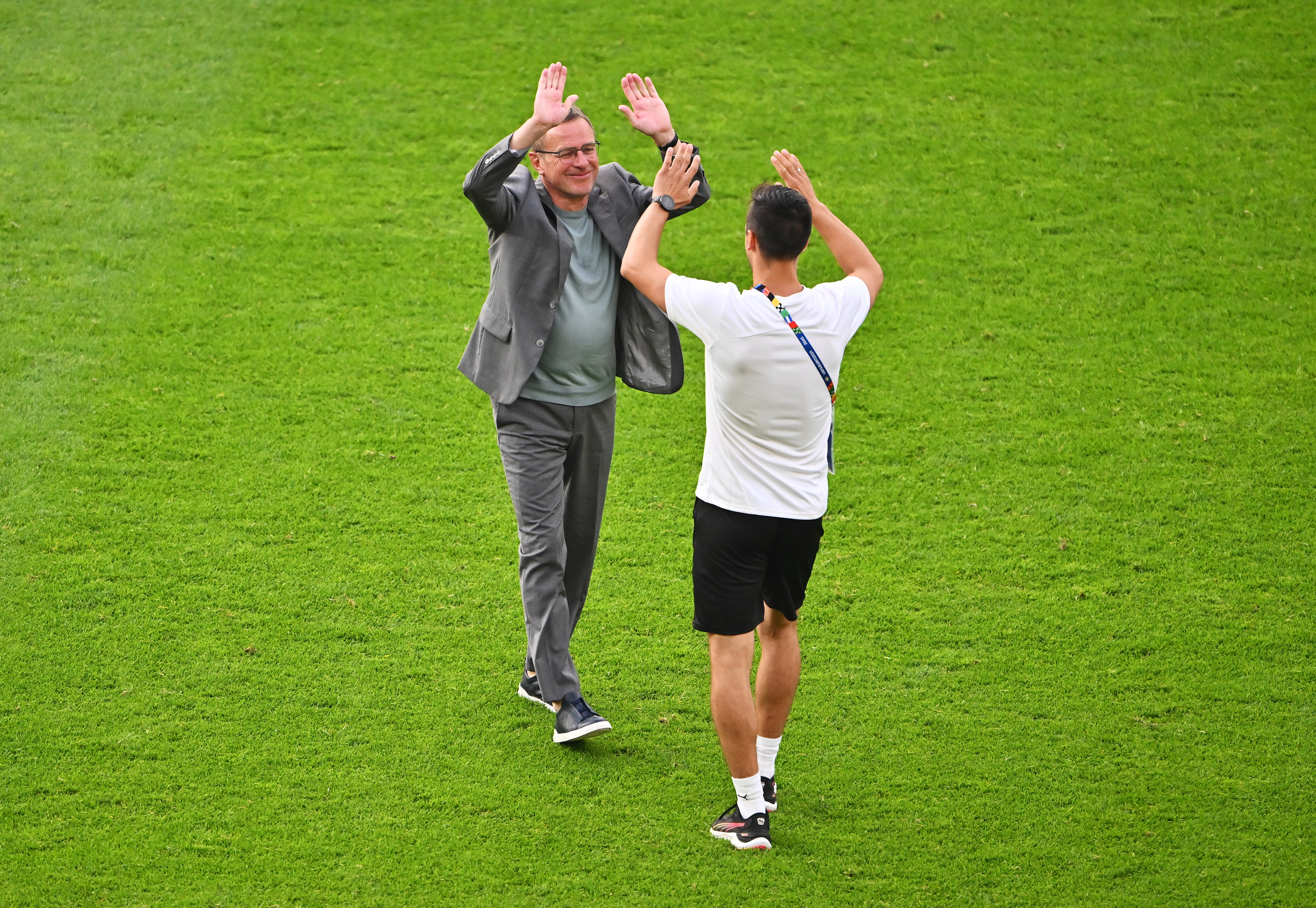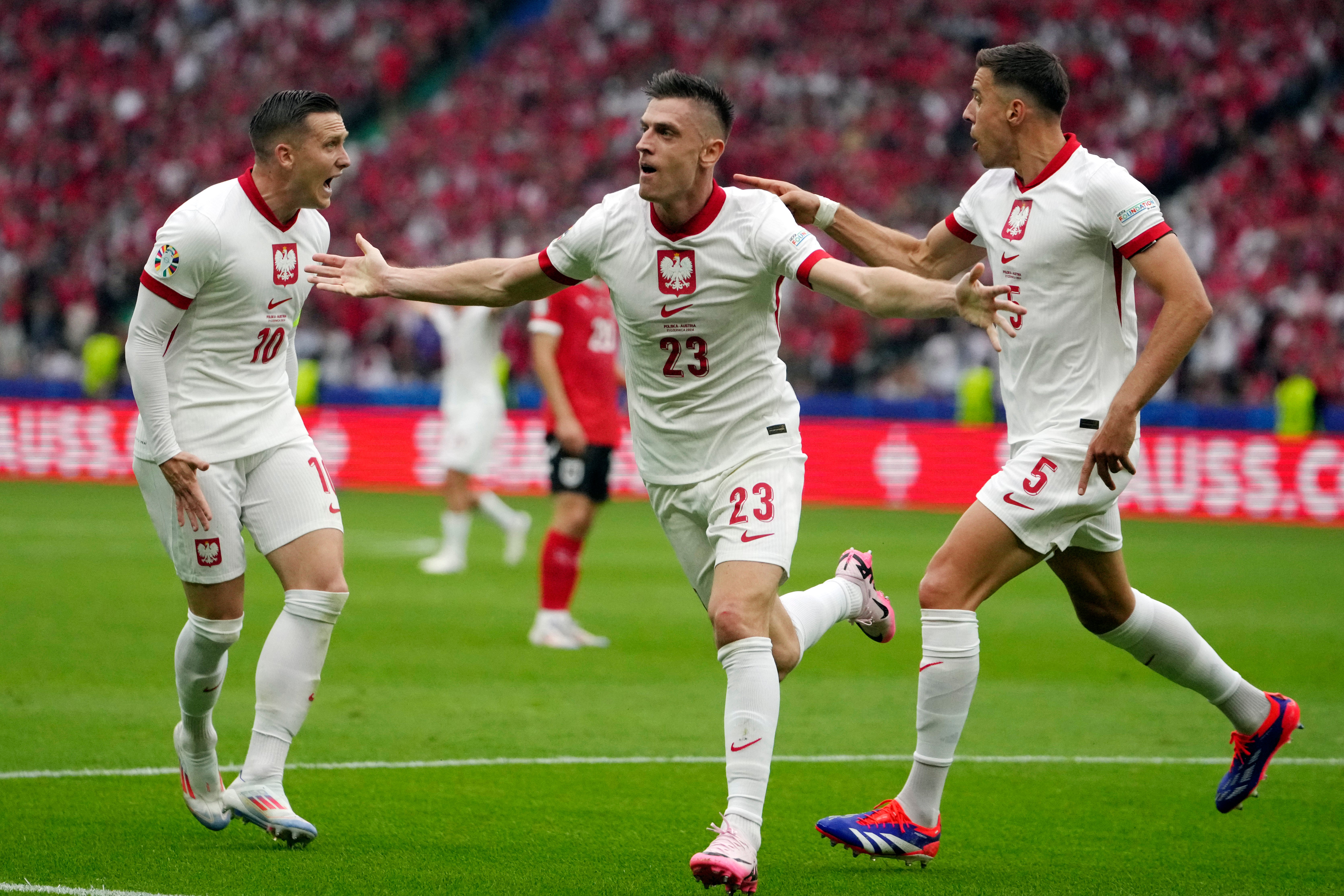This is why Ralf Rangnick turned down Bayern Munich – Austria can cause a real Euro 2024 upset
Poland 1-3 Austria: Marko Arnautovic wrapped up the win with a penalty, which leaves the Poles facing a huge task to avoid elimination

Your support helps us to tell the story
From reproductive rights to climate change to Big Tech, The Independent is on the ground when the story is developing. Whether it's investigating the financials of Elon Musk's pro-Trump PAC or producing our latest documentary, 'The A Word', which shines a light on the American women fighting for reproductive rights, we know how important it is to parse out the facts from the messaging.
At such a critical moment in US history, we need reporters on the ground. Your donation allows us to keep sending journalists to speak to both sides of the story.
The Independent is trusted by Americans across the entire political spectrum. And unlike many other quality news outlets, we choose not to lock Americans out of our reporting and analysis with paywalls. We believe quality journalism should be available to everyone, paid for by those who can afford it.
Your support makes all the difference.So this is why Ralf Rangnick rejected Bayern Munich. Euro 2024’s oldest manager could have taken charge of the biggest German club but rejected them to stay with Austria. Instead, he may be coaching for a little longer in his homeland this summer. A stirring victory gave Austria a fighting chance of reaching the last 16.
Poland, meanwhile, look almost certain to be the casualties of the group of death, without a point, with only a meeting with France to come. For Robert Lewandowski, his entrance to the tournament delayed by injury, his exit could come early.
But for Christoph Baumgartner, there was a seismic strike to accompany his statistical marvel. In March he scored what appears to be the fastest goal in the history of international football. After that six-second effort against Slovakia, a goal in the 66th minute felt slovenly, but it was also well-taken and decisive, putting Austria ahead.
Then came what could prove the final blow for Poland. Penalties had taken them to Euro 2024, with Wojciech Szczesny’s shootout save from Wales’ Dan James deciding their play-off. A penalty gave Austria a cushion. It was conceded by Szczesny, with Marko Arnautovic then beating him from 12 yards.
And so Austria, narrowly defeated by France, with the Netherlands to come, can glimpse the last 16. They got there in Euro 2020, but from a lesser group, playing duller football. This, however, was the Rangnick revolution put into practice, Germany’s original gegenpresser showing what he can do on the international stage.
Austria approached a raucous occasion with remarkable intensity. It is harder to press in international football, when players have less time to forge the necessary cohesion, but Rangnick’s Austria do, fervently. They allied a fast start with a strong finish. Rangnick contributed, too, making telling, terrific substitutions.


Patrick Wimmer contributed verve in the attack but perhaps the most notable switch was to replace a left-back with an assist with another who emulated him. Philipp Mwene had set up Austria’s first goal, brilliantly headed in by Gernot Trauner. Alexander Prass’s pass led to Baumgartner’s second. Another Rangnick switch was to bring Arnautovic into the starting 11. The 35-year-old may not have the pace to make him a natural fit for this brand of football but he has speed of thought; his dummy was pivotal in Baumgartner’s goal.
And in the battle of the veteran strikers, Arnautovic emerged as the winner. Lewandowski only began on the bench, his thigh problem altering Poland’s plans for him to start in Berlin. He finally entered the tournament after an hour. His early impact was of the wrong sort, collecting a booking inside four minutes for an elbow on Philipp Lienhart. Poland’s record scorer had no shots, no goals, but a view from the pitch as Austria surged ahead.
The vast Polish contingent face a swift return home, but they turned this into a magnificent, memorable afternoon. This historic bowl was an oval of noise, two of the biggest fanbases in Germany generating a wonderful atmosphere. The Poles and the Austrians have crossed the border in their droves; Germany’s centrality in Europe has made this a very accessible tournament. It has been a high-quality one, too: this pool, in particular, has been an advertisement for a 24-team tournament, with Poland qualifying via the back door and yet looking a side who, in another pool, might have reached the last 16.
They can reflect on chances. The lively Przemyslaw Frankowski blazed over. Patrick Pentz parried Piotr Zielinski’s free kick and, at 2-1, made a crucial save from Karol Swiderski. Kamil Grosicki volleyed wide late on. They had shown the resilience to level, Krzysztof Piatek sidefooted in the rebound after Jan Bednarek’s shot was blocked by Trauner.

There were nevertheless points when they were battered by the energetic Austrians. They led early, Trauner heading into the top corner to reward Rangnick for bringing the centre-back into the team. The second goal had his fingerprints on it, too: Prass had only been on the pitch for three minutes when he passed infield and Arnautovic let the ball run through to Baumgartner. His second touch was sidefooted past Szczesny who, strangely, dived the wrong way. Baumgartner has been prolific for Austria under Rangnick; a vibrant display meant he was arguably the man of the match even without the goal.
And Austria soon had another. Marcel Sabitzer nipped in ahead of a dopey Bednarek, charging through until Szczesny brought him down, at a cost of a booking and a penalty. Marko Arnautovic sent Szczesny the wrong way. Konrad Laimer almost added a fourth but it was not required for Rangnick’s rampant Austria.
A manager whose importance can be measured more in influence than trophies, and who deserves to be remembered far more than for floundering as Manchester United’s caretaker, has Austria on the brink. They have only played one knockout game in tournament football in the last four decades. Now a second beckons.
Join our commenting forum
Join thought-provoking conversations, follow other Independent readers and see their replies
Comments